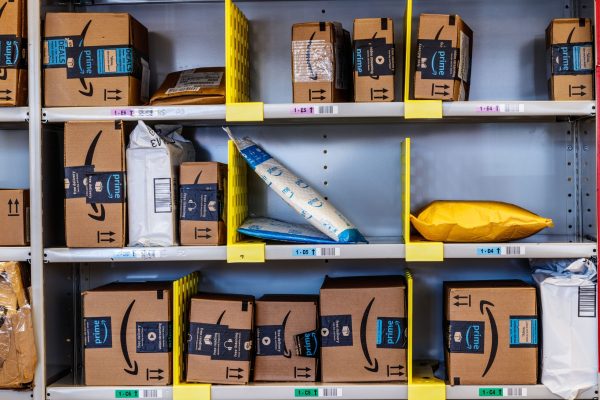Ecommerce has been a steadily growing arm of the retail market over recent years, with the COVID-19 pandemic cementing it as the preferred method for shopping among consumers. Order volumes are increasing, but so are the options available to potential customers. Customer experience is therefore key in retaining a competitive edge, and it’s at the heart of the most common challenges to ecommerce logistics.
Outsourcing fulfilment and scaling up your ecommerce business can free up time so you can focus on the brand. Here are some of the key challenges you might come across:
1. Rising expectations for delivery speed
Today’s consumers hold the power. As competition grows between webshops and marketplaces, many companies are selling similar products online. This means that it’s easy for consumers to shop around and pick the best price and delivery time, and they are unlikely to wait around if you’re out of stock on a product, and will instead go to a competitor. Therefore, it’s crucial that you match the best price and shipping time out there, and that your inventory management system is solid so that you never run out of stock on a popular product.
2. Warehouse management
A comprehensive warehouse management system will play a crucial part in meeting demands on fulfilment speed. An efficiently organised warehouse helps speed up inventory management and product retrieval, meaning that you get your product picked, packed and shipped off to your customers as quickly as possible. Localised warehousing will also help you significantly, and the move towards this has been accelerating as companies experience higher demand in order volumes.
3. Real-time tracking
Offering real-time tracking is no longer an option – it will put you at a competitive disadvantage if you don’t. Shoppers want to be able to anticipate when their delivery will arrive, and the more accurate the detail you can give, the happier the customers, ensuring they return.
While this visibility needs to be full and in real-time, the importance of the last mile has to be stressed. Sometimes people need to fit deliveries around other activities and plan when they need to be home. With the rise of delivery apps, consumers are also used to being able to see exactly where their driver is and what time they will arrive, even to the minute. The smaller the window you can give, the better.
4. Mobile-optimised websites
As the proportion of market share held by ecommerce grows, m-commerce is growing at an even greater speed. This trend is projected to continue, if not accelerate. Technological advances mean it’s easy for people to shop on their phones wherever they are, and it’s especially popular with younger generations, who hold increasing spending power.
This is why your website needs to be mobile-optimised. There are, however, many other things to consider when choosing the right platform for your business, including shopping cart solutions, inventory management software and analytics systems, to ensure optimal growth and efficiency. Navigating these demands can seem like a headache without expert guidance, especially if you’re transitioning to new systems.
5. Security
As ecommerce continues to grow in popularity, it has become a more attractive playing field to fraudsters and identity thieves. Criminals target both sellers and buyers, and while successful hacking incidents are relatively rare, they can gain media interest when they happen. This can be detrimental to a company’s reputation as it dents consumer confidence. Customers’ details need to remain safe, and reliable and up-to-date security systems are necessary to ensure this.
Sprint Logistics: effective product fulfilment and delivery solutions
End-to-end third party logistics allows you the flexibility to focus on growing your business while you outsource fulfilment. At Sprint Logistics, we offer comprehensive retail logistics services from storage, pick and pack and shipping to an easy returns process, while giving you total control and visibility over your logistics.
Our ecommerce delivery services integrate seamlessly into your supply chain, while we manage everything from freight planning, to serial coding, to single and onward bulk shipping. You’ll have access to our international network of warehouses, forward stocking locations and delivery services, as well as our expertise.
Contact us today to find out more about the ecommerce logistics solutions we offer.



